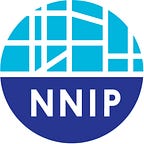Leading with Data for Community-Centered Pandemic Relief and Response
by Sonia Torres Rodríguez and Fay Walker
A publication of the Local Data for Equitable Recovery Resource Hub
The COVID-19 pandemic has laid bare many inequities caused and perpetuated by systemic racism. As the pandemic continues, local entities, such as community organizations, research institutes, and government agencies, should understand not only the challenges confronting the country but also the unique challenges facing their communities. And although local change agents often have the most capacity to implement change, they often lack access to up-to-date, relevant data.
Earlier this year, the Robert Wood Johnson Foundation and the Urban Institute partnered to fund 17 projects that will provide local stakeholders with timely data and information for a more equitable and effective response to the pandemic. The selected grantees have been engaging with communities to create, analyze, interpret, and translate data for local audiences. Their projects are addressing affordable housing, workforce development, transportation, child care, and food security, displaying the importance of an intersectional approach to COVID-19 recovery.
Responding to the housing crisis
Renters and homeowners, especially Black and/or Latinx families, are facing greater housing instability because of systemic factors like housing discrimination and greater employment vulnerability. Grantees in Dallas, Memphis, Philadelphia, and Washington, DC, are working with community partners to keep people from being evicted or losing their homes, including directly engaging those experiencing housing instability. Examples of grantee activities include surveying housing providers and advocacy groups to coordinate responses to the housing crisis, using data to identify rental housing most at risk of becoming unaffordable, and analyzing court records to assess the effects of local policies implemented to mitigate the eviction crisis.
Supporting an economic recovery
Nearly 60 million people have filed for unemployment since March 2020. One driver of this steep increase is that more and more small businesses have closed since March. Grantees in Miami, Florida, and Jefferson Parish, Louisiana, are creating local responses to this crisis by providing direct relief to small-business owners and by assessing the pandemic’s effects on small businesses and workers to inform action by elected officials. Both projects are focused on building equitable local economic recoveries in Black, Indigenous, and communities of color, who have been disproportionately affected by the pandemic’s economic effects.
Engaging residents in planning response and recovery efforts
Collecting data from people in communities most affected by COVID-19 is one way to listen to communities and understand their needs, but it also requires thoughtful planning and strategies. As communities struggle with the impacts of the coronavirus, engaging residents through data initiatives is even more challenging. Grantee initiatives in Milwaukee and San Diego are implementing projects that directly involve resident input in developing pandemic response and recovery planning. In San Diego, a grantee is surveying residents to understand how they obtain critical information about COVID-19 to improve the grantee’s dissemination strategies. In Milwaukee, residents are coming together to review data about their community and working with a community-based partner to identify and address their community’s needs.
Transportation
Sustainable and inclusive transit systems are key to addressing health and economic disparities. The COVID-19 pandemic has introduced new public health concerns about public transit and a higher demand for alternative modes of traveling within cities. Some grantees are working to better understand needs of resident who rely the most on public transportation and who live in Black and/or Latinx communities. A grantee in Houston aims to understand how the city’s stay-at-home orders have affected residents who rely on public transportation. A Chicago grantee is gathering new data on how COVID-19 and racial justice protests have changed perspectives on community health needs and walkability.
Child care
The economic shutdown and reopening has put added pressure on working parents. In Cuyahoga County, Ohio, our early education grantee, an out-of-school time resource and referral agency for children, will analyze data on child care operations to better understand how COVID-19 has affected child care programs.
Food security
Drastic loss of income and employment because of the pandemic has led to less access to healthy food in low-income communities. Our grantee in Houston, Texas cultivates thriving communities through gardening and access to healthy food. Their project will launch a mobile market to provide food to the most food-insecure residents and gather data on food insecurity, food choices, shopping behaviors, and the ways participants access services.
Cross-cutting community priorities
Long-standing racial, health, and socioeconomic inequities have all been brought to the fore during the pandemic. Several grantees are focused on building local data capacity that can lead to data-informed decision making and processes both at the local community and policy levels. Grantees in central Ohio and rural Georgia are creating a series of publications to understand the pandemic’s local impacts. Another grantee is undertaking participatory data analysis with a diverse array of communities, including LGBTQ and disability advocates, across Hartford, Connecticut. Grantees in southern Texas and Los Angeles are seeking to improve community response analyzing quantitative data and community interviews and surveys.
Data-driven COVID-19 response requires listening to communities, gathering new data, and creating data-driven policies that are truly rooted in understanding community needs and advocating for an adaptive and equitable response to COVID-19. Learn more about the Using Data to Inform Local Decisions on COVID-19 Response & Recovery grant program.
